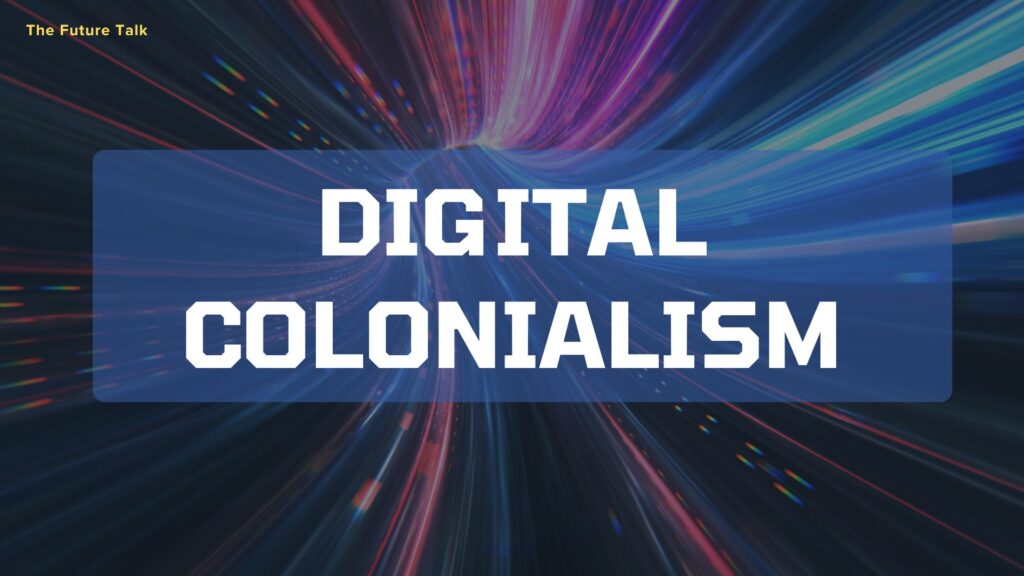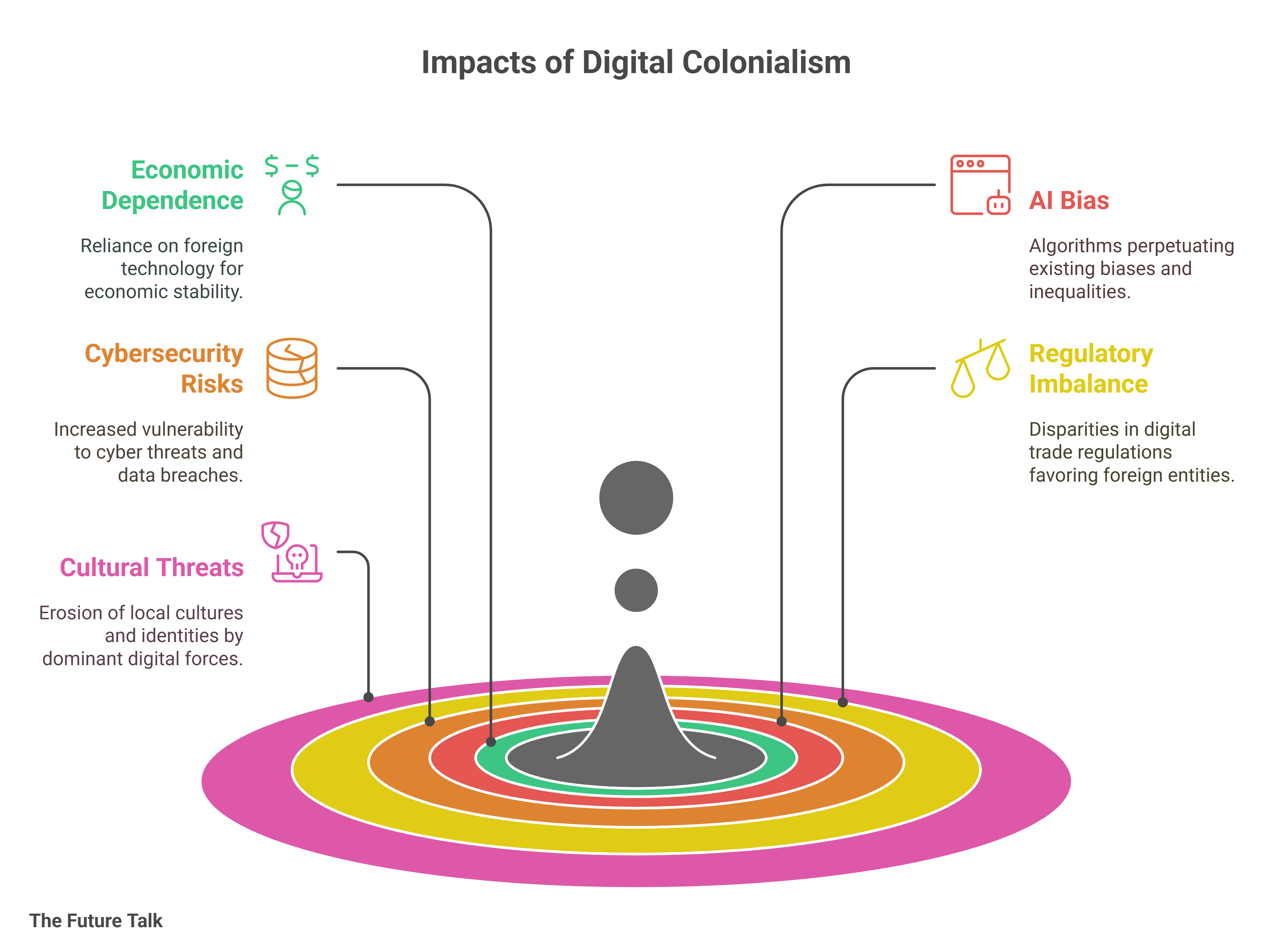
Data has always been a concern for individuals, groups, and nations. In today’s digital world where everything is connected to the internet, data is critical to generate not only leads but also to harm an individual’s privacy and even distress a country politically, economically, and socially. This is fundamentally colonial in nature and called ‘Digital Colonialism’.
Putting the emphasis on this, Tata group chairman N Chandrasekaran highlights the need of sovereign artificial intelligence (AI) systems in India to avert the risks associated with digital colonialism.
What is Digital Colonialism?
Digital colonialism refers to the dominance exerted by developed countries or big tech corporations on another country or territory with the use of digital technology. This dominance can be political, economic, or social over digital platforms, data, and technological infrastructure.
This practice generally mirrors traditional colonialism – how Europeans settled foreign land, deployed infrastructure like sea ports and railways, installed heavy machinery and exploited labor to extract raw materials. For digital colonialism, this phenomenon is done in the digital realm.
How Digital Colonialism Happens?
There are various aspects of digital colonialism:
Control over Digital Platforms: Developed nations and tech giants can dominate the digital world with the use of digital platforms like social media and e-commerce to influence developing countries’ digital economy and policies.
Data Collection and Dependency: Global tech giants can collect and utilize data from developing countries without any consent of their citizens. This can create a country’s dependency on the big tech for the use of data in their favor.
Cultural Influence: Digital platforms have the power to influence cultural norms and behaviors, which could support Western values and standards and undermine regional cultures.
Economic Disparities: Digital colonialism can widen economic gaps, instead of boosting local economies by consolidating power and wealth in the hands of a few multinational businesses.

Why You Need To Consider Digital Colonialism in 2025?
With the rapid advancements in technology, the digital world is expanding massively. In this scenario, data is becoming more susceptible as technologies like generative AI and machine learning require data to train. This is where organisations and countries need to consider how their customers’ and citizens’ data are used.
Whether such data is being used to train these advanced technologies for their benefit or to create big tech dominance. Since big technology companies increasingly rely on user data globally, various data protection laws and regulations have been made to ensure ethical use of that data.
However, these data protection laws are not used uniformly in many cases. We have always heard of data leakage by tech giants. For example, Google and Facebook dominate the online advertising industry in several parts of the world, Netflix has pulled out and is continuously pulling out subscribers away from television services, ride sharing companies are also using user data.
Alongside these tech giants, companies across industries are leveraging user data. A huge amount of user data is largely being threatened by consulting and BPO companies that collect user data. Many people agree with the fact that they get an average one ot two spam calls daily. Now, think of this, how do they get these spam calls?
Also Read: Digital Intelligence for Digital Customers: Maximizing ROI in the Digital Age
How To Avoid Digital Colonialism?
One of the foremost factors to avoid digital colonialism is to strengthen digital sovereignty.
Speaking at the Mumbai Tech Week 2025, Chandrasekaran said “If we don’t develop sovereign AI capabilities, we have a major risk of having all of our activities, languages and cultures being processed by AI systems that don’t understand India. It will take it to a different place, a kind of a digital colonialism that we should avoid.”
According to him, the Tata group is in the process of building AI projects including AI agents, AI robotics, and infrastructure, virtual workers, and capabilities to nurture talent through an AI institute.
Also Read: Deepseek Vs ChatGPT: Unveiling The Hype With Comparison
Thus, as we are rapidly moving towards digital, there is a need to implement data protection regulations, develop ethical AI standards, and promote Local Tech Innovations.
Digital colonialism is not just limited to technology but also becomes a geopolitical and ethical challenge. Thus, it is crucial to assess this phenomenon and its implications for privacy, economic sovereignty, and innovation.
Stay tuned to The Future Talk for more such interesting topics. Comment your thoughts and join the conversation.